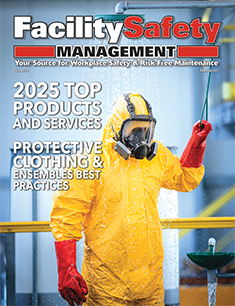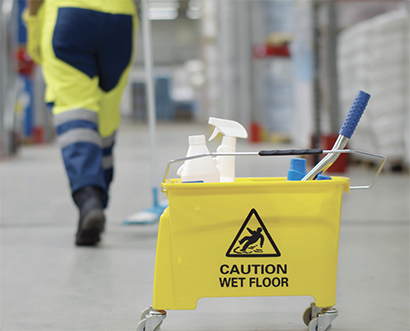July 2025
 |
Inside the July Issue |
Conveyor Safety and the
Return on Prevention
BY JERAD HEITZLER
 Protecting workers should be the top
priority for any employer, especially
those on the front line of materials processing.
Beyond the substantial financial
consequences of a workplace injury
or fatality, the impacts are felt profoundly
by an employee’s family, their
coworkers, and the wider community.
Protecting workers should be the top
priority for any employer, especially
those on the front line of materials processing.
Beyond the substantial financial
consequences of a workplace injury
or fatality, the impacts are felt profoundly
by an employee’s family, their
coworkers, and the wider community.
Thus, investing in safe, well-engineered
equipment and prevention-focused
training that helps protect workers
from injury or illness is essentially investing
in people, company culture, and
the community. And Martin’s technicians
are increasingly applying their expertise
to help operators control
maintenance risks by sharing their
knowledge and installing equipment that
improves safety.
Although return on investment (ROI) is a common calculation when installing new conveyor accessories,
some safety experts emphasize the return on prevention
(ROP). This long-term strategy prioritizes equipment
with safety engineered into the design, allowing for more ergonomic
servicing, faster and easier access, and other improvements
that make maintenance less dangerous and more
desirable to do. Although safer equipment is typically a
larger initial capital investment, the whole life return is in
faster maintenance with less downtime, longer equipment
life, and, importantly, a considerably lower chance of an incident,
reducing the overall cost of operation.
The Real Costs of ROI
Calculating return on investment (ROI) on conveyor safety
is specific to each operation, but in general, they can be broken
down into “direct costs” and “indirect costs”:
• Direct costs are explicitly associated with an accident or
illness. In general, these include fines, medical bills, insurance
premiums, indemnity payments and temporary
disability payments.
• Indirect costs include a variety of other expenses resulting
from the incident. They include:
- Cleanup time and product loss
- Equipment repair / replacement
- Purchase / installation of safety
components
- Overtime to fill in for the missing
worker
- Cost of hiring, training and equipping
new employees
- Legal fees and litigation costs
- Increased insurance premiums
- Production delays and missed shipment
targets
- Reduced employee morale, greater
absenteeism
- Negative publicity
- Increased scrutiny by regulators.
The Price of Recovering
From An Accident
To demonstrate the benefits of safety
to a company’s bottom line, OSHA created
the online tool, ‘$afety Pays’, which
uses company-specific economic information
to assess the potential economic
impact of occupational injuries on that
firm’s profitability. Full story »
today's News
OSHA Proposes Significant Deregulation, Altering Safety Standards
WASHINGTON, DC -- U.S. Department of Labor Secretary Lori Chavez-DeRemer announced an initiative July 1, 2025, that proposes eliminating or revising numerous regulations deemed outdated, duplicative, or unnecessarily inflexible. Changes proposed as part of the Occupational Safety and Health Administration (OSHA) deregulation efforts can affect various safety rules.
NSC Honors 50 Organizations with 2025 Industry Leader Awards
WASHINGTON, DC -- The National Safety Council awarded 50 organizations with the 2025 Industry Leader Awards for outstanding safety performance within their industries, up from 35 organizations in 2024.
ISEA Members Testify at OSHA Heat Hearing
ARLINGTON, VA -- As record-breaking heat waves sweep the country, the Occupational Safety and Health Administration (OSHA) is moving forward on its proposed Heat Injury & Illness Prevention Rule—a long-awaited federal standard aimed at protecting workers from the growing risks of occupational heat stress.
SFPE Announces Seven Members Elevated to Highest Fellow Status
GAITHERSBURG, MD -- The Society of Fire Protection Engineers (SFPE), the world’s leading professional society for fire protection and fire safety engineering, announces its 2025 class of Fellows and award recipients.
Toyota Provides $600K for Texas Flood Relief
PLANO, TX -- Toyota Motor North America (TMNA) is partnering with Toyota Financial Services (TFS), Gulf States Toyota (GST), Southeast Toyota (SET), Vic Vaughan Toyota of Boerne and Toyota and Lexus dealers nationwide, to provide a combined donation of more than $600,000 to support those impacted by the devastating flash floods in Kerr County and the Texas Hill Country over the July 4th weekend.









